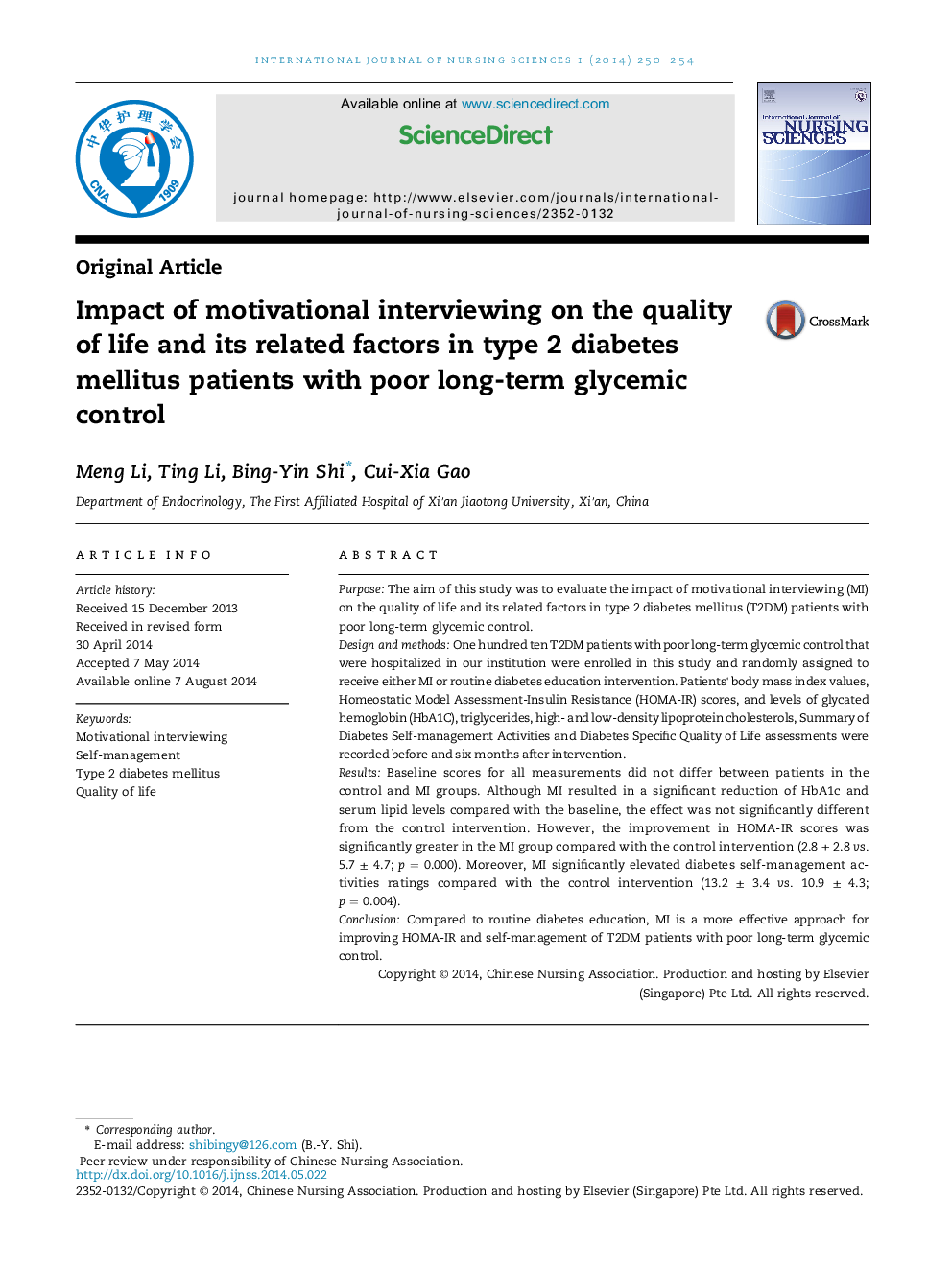| Article ID | Journal | Published Year | Pages | File Type |
|---|---|---|---|---|
| 2655888 | International Journal of Nursing Sciences | 2014 | 5 Pages |
PurposeThe aim of this study was to evaluate the impact of motivational interviewing (MI) on the quality of life and its related factors in type 2 diabetes mellitus (T2DM) patients with poor long-term glycemic control.Design and methodsOne hundred ten T2DM patients with poor long-term glycemic control that were hospitalized in our institution were enrolled in this study and randomly assigned to receive either MI or routine diabetes education intervention. Patients' body mass index values, Homeostatic Model Assessment-Insulin Resistance (HOMA-IR) scores, and levels of glycated hemoglobin (HbA1C), triglycerides, high- and low-density lipoprotein cholesterols, Summary of Diabetes Self-management Activities and Diabetes Specific Quality of Life assessments were recorded before and six months after intervention.ResultsBaseline scores for all measurements did not differ between patients in the control and MI groups. Although MI resulted in a significant reduction of HbA1c and serum lipid levels compared with the baseline, the effect was not significantly different from the control intervention. However, the improvement in HOMA-IR scores was significantly greater in the MI group compared with the control intervention (2.8 ± 2.8 vs. 5.7 ± 4.7; p = 0.000). Moreover, MI significantly elevated diabetes self-management activities ratings compared with the control intervention (13.2 ± 3.4 vs. 10.9 ± 4.3; p = 0.004).ConclusionCompared to routine diabetes education, MI is a more effective approach for improving HOMA-IR and self-management of T2DM patients with poor long-term glycemic control.
